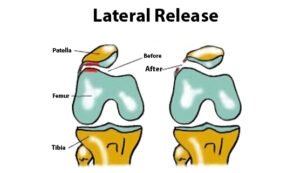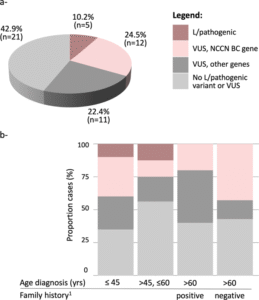Period Back Pain_ Steps to Find Relief
Relieving Period Back Pain: Effective Strategies and Tips
Read Time: 5 Minutes
Many women experience period-related back pain, with hormonal changes playing a major role in the discomfort. This type of pain can result from muscle tension in the lower back, often due to hormonal shifts during menstruation. In this article, we’ll discuss why period back pain occurs and share effective strategies for alleviating the discomfort.
Understanding Period-Related Back Pain
Back pain is just one symptom many women face during their menstrual cycle. Other common symptoms include:
-
Acne
-
Bloating
-
Fatigue
-
Mood swings
-
Lower abdominal cramps
-
Tender breasts
About 1 in 10 women experience significant symptoms leading up to their period, with nearly 40% finding their symptoms severe enough to interfere with daily activities.
What Causes Period Back Pain?
Period back pain occurs due to hormonal changes, specifically increased levels of prostaglandins. These hormones stimulate uterine contractions, which can radiate pain to the lower back. In some cases, the pain can be severe, caused by chemical imbalances or underlying medical conditions. It’s common to feel this discomfort in the lower abdomen, lower back, and hips. The pain may vary from mild to intense, and it can differ from month to month.
Conditions Linked to Severe Period Back Pain
Certain health conditions can exacerbate period-related back pain. These include:
-
Endometriosis
-
Ectopic pregnancy
-
Uterine fibroids
-
Pelvic inflammatory disease (PID)
-
Pelvic cysts, infections, polyps, or tumors
Managing Period Back Pain at Home
There are several at-home remedies to alleviate period back pain:
-
Massage Therapy: Gently massaging the lower back can help relieve muscle tension.
-
Heat Therapy: Applying a heating pad or taking a warm bath can soothe discomfort.
-
Exercise and Movement: Gentle activities like walking or yoga can improve circulation and reduce pain.
-
Diet Adjustments: Reducing processed foods, sugar, dairy, alcohol, and red meat can help lessen pain intensity.
Many women also use natural remedies like basil, cinnamon, chamomile, ginger, parsley, and raspberry leaf to manage menstrual discomfort.
Dealing with Period Pain Outside the Home
Managing period back pain away from home can be challenging, but there are ways to cope effectively:
-
Take Breaks: Stretching or walking periodically can ease the pain.
-
Pack Relief Tools: Bring along herbal tea or essential oils, which can provide relief. Essential oils such as cinnamon, clove, rose, and lavender are especially beneficial when used with a gentle belly massage.
-
Portable Heating Pads: These can be worn discreetly to provide continuous warmth.
-
Stay Active and Rested: A balanced routine of exercise, plenty of sleep, and a nutritious diet can help manage the pain.
Medical Treatment for Period Back Pain
If self-care measures don’t offer enough relief, medical treatments may be necessary. Nonsteroidal anti-inflammatory drugs (NSAIDs) are commonly recommended as a first step. Some women may use hormonal birth control to manage period-related symptoms, but the effectiveness for back pain relief is still under study.
Consulting with a healthcare professional, such as an obstetrician-gynecologist (OB-GYN), can help determine if any underlying conditions are contributing to the pain.
The Role of Stress Management and Self-Care
Managing stress plays a key role in reducing period-related discomfort. Women under high stress are more likely to experience more severe pain before or during menstruation. Regular self-care practices, such as:
-
Spending time with loved ones
-
Engaging in hobbies
-
Practicing meditation and relaxation techniques
…can help reduce stress and improve your overall well-being, ultimately reducing pain during menstruation.
Conclusion
Many women experience period back pain due to hormonal changes and uterine contractions. However, it can also be a sign of underlying medical conditions that may require attention. A healthy diet, regular exercise, stress management, and natural remedies can help manage the discomfort. If the pain is severe or persistent, it’s essential to consult with a healthcare provider to explore other treatment options.
FAQs
-
What causes period cramps that are so severe you can’t move?
-
What are the causes of severe back pain during menstruation?
Expert Tips for Managing Period Pain
-
Incorporate seasonal foods to keep your meals enjoyable and nutritious.
-
Use time-saving tips to prepare meals that help nourish your body.
-
Explore dietary alternatives for women with food sensitivities or preferences.
Key Takeaways
-
Period back pain is common and can be managed with various strategies.
-
A combination of home remedies, exercise, and stress management can help alleviate discomfort.
-
Medical treatment may be necessary if pain is severe or persistent.
Join Our Community
Looking for more health tips and advice? Subscribe to our newsletter for weekly updates






